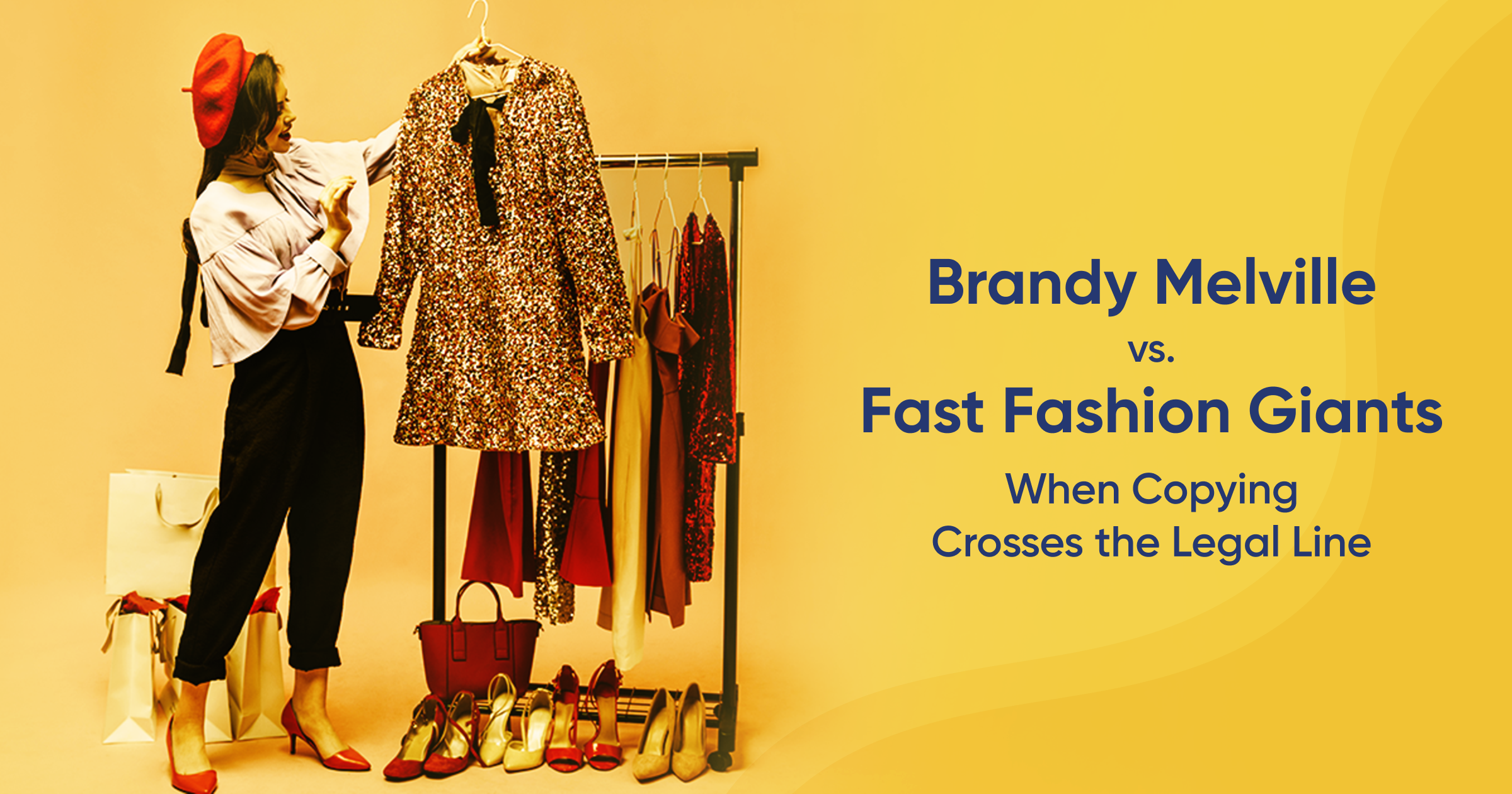The fashion world is no stranger to imitation. Trends move fast, and so do copycats. But sometimes, imitation crosses the line into outright theft. That’s exactly what’s at the heart of the recent lawsuits filed by fashion brand Brandy Melville against fast-fashion retailers Temu and Shein.
These cases are different from the usual “design-copying” complaints that rarely succeed. Instead, Brandy Melville is focusing on something much more concrete, and legally protectable: their marketing materials and brand identity.
Why Most Fashion Designs Aren’t Protected
In the U.S., copyright law protects creative works. But clothing is seen as a “useful article,” which limits legal coverage. Shapes, cuts, and most patterns don’t qualify for copyright. Only original, artistic elements, like a fabric print, can be protected. Trademark law helps when a logo or brand name is copied. Trade dress may also apply, but only under strict rules.
To qualify as trade dress, a design must be both distinctive and non-functional. That’s hard to prove in fashion. So, if someone copies your dress design but changes the logo, you may have no legal claim.
Brandy Melville Took a Smarter Route
What makes these lawsuits different is Brandy Melville’s focus. The claims are not just about copied clothing. Instead, they highlight the use of Brandy Melville’s own photographs and online content to sell knock-offs.
Temu and Shein allegedly used their exact marketing images. Some photos were barely changed, with only the clothing color altered. This is not just copying a trend. It’s using copyrighted images to sell unrelated products, and that crosses a legal line. Copyright law does protect original photographs. Using those without permission is considered clear infringement.
There’s a Trademark Issue Too
The lawsuits also raise concerns about brand confusion. The use of these images may mislead customers. If shoppers believe they’re buying official Brandy Melville products, that’s a false association under trademark law.
The law protects consumers from being misled. It also helps brands defend their identity from imitation. Using someone’s promotional content to drive sales can be seen as unfair competition and misrepresentation.
Why This Case Matters
Fashion brands usually struggle in court because designs are hard to defend. Knock-offs often don’t break the law directly. But when copying includes protected content, like photos or branding, it becomes a much stronger case.
That’s why Brandy Melville’s lawsuits are being closely watched. They offer a path other brands could follow. Instead of chasing design rights alone, brands can protect their marketing work and win in court.
If you’re building a fashion brand, it’s important to secure your creative assets. Start with your brand name and logo. Register them as trademarks. That gives you legal rights against lookalikes using similar names or packaging.
Also, copyright your original photos, website visuals, and product descriptions. These are easier to enforce than design elements. When someone uses your content without permission, you can take legal action to stop them.
Let Trademarkia Help You Stay Protected
At Trademarkia, we help fashion businesses protect what matters, your brand name, photos, and product identity. Our legal team can help you register trademarks, copyright your content, and act fast against infringers.
Whether you're just starting out or facing an issue today, we’re here to guide you. Register your logo or brand name. Copyright your product photos and marketing content. Take legal action against brand misuse
Don't wait until someone copies you. Start protecting your brand now with Trademarkia.

